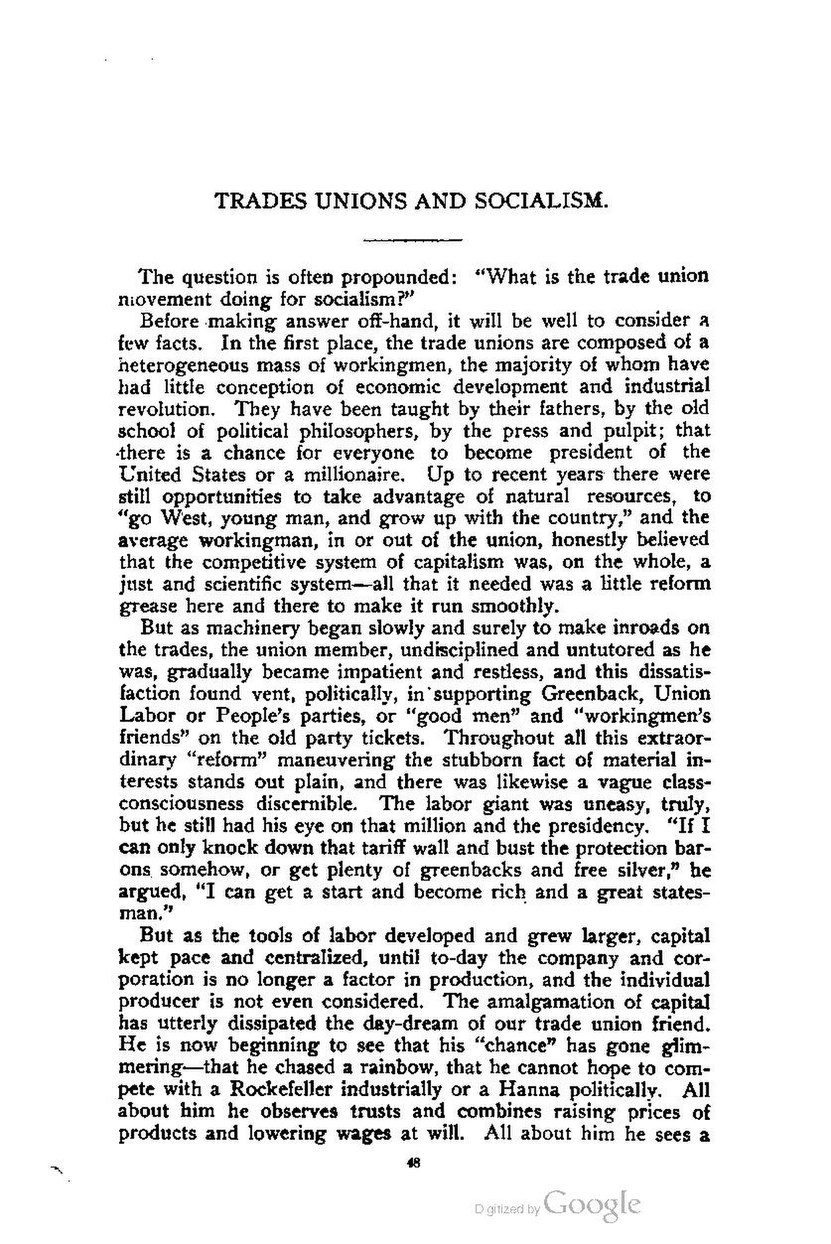Trades Unions and Socialism.
The question is often propounded: "What is the trade union movement doing for socialism?"
Before making answer off-hand, it will be well to consider a few facts. In the first place, the trade unions are composed of a heterogeneous mass of workingmen, the majority of whom have had little conception of economic development and industrial revolution. They have been taught by their fathers, by the old school of political philosophers, by the press and pulpit; that there is a chance for everyone to become president of the United States or a millionaire. Up to recent years there were still opportunities to take advantage of natural resources, to "go West, young man, and grow up with the country," and the average workingman, in or out of the union, honestly believed that the competitive system of capitalism was, on the whole, a just and scientific system—all that it needed was a little reform grease here and there to make it run smoothly.
But as machinery began slowly and surely to make inroads on the trades, the union member, undisciplined and untutored as he was, gradually became impatient and restless, and this dissatisfaction found vent, politically, in supporting Greenback, Union Labor or People's parties, or "good men" and "workingmen's friends" on the old party tickets. Throughout all this extraordinary "reform" maneuvering the stubborn fact of material interests stands out plain, and there was likewise a vague class-consciousness discernible. The labor giant was uneasy, truly, but he still had his eye on that million and the presidency. "If I can only knock down that tariff wall and bust the protection barons somehow, or get plenty of greenbacks and free silver," he argued, "I can get a start and become rich and a great statesman."
But as the tools of labor developed and grew larger, capital kept pace and centralized, until to-day the company and corporation is no longer a factor in production, and the individual producer is not even considered. The amalgamation of capital has utterly dissipated the day-dream of our trade union friend. He is now beginning to see that his "chance" has gone glimmering—that he chased a rainbow, that he cannot hope to compete with a Rockefeller industrially or a Hanna politically. All about him he observes trusts and combines raising prices of products and lowering wages at will. All about him he sees a
